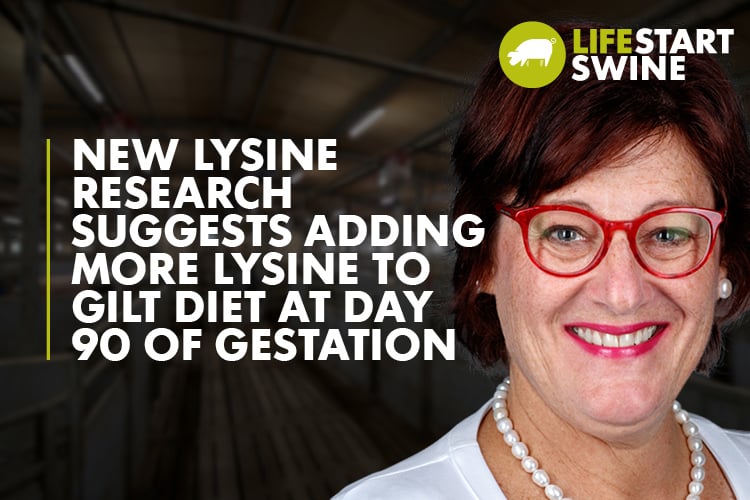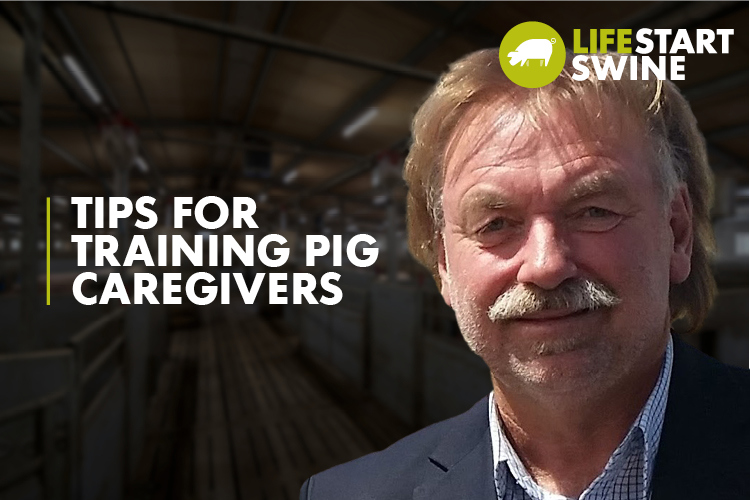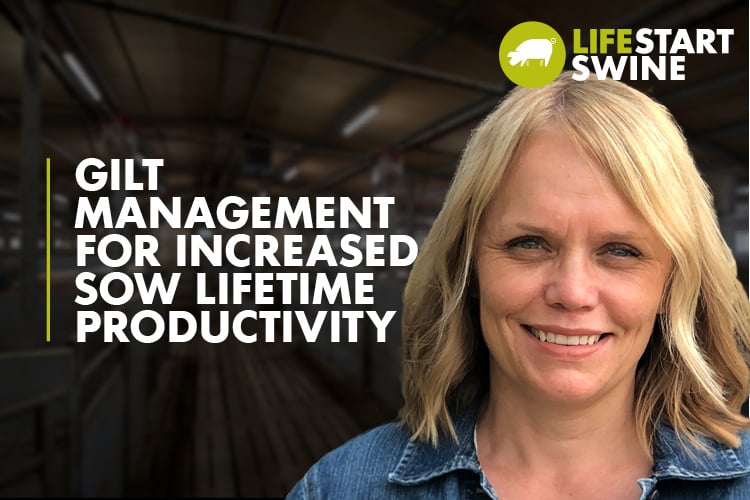
Tips for training pig caregivers
- 2025
- EARLY LIFE
Working in partnership with LifeStart Swine, The Pig Site’s editor Sarah Mikesell developed a Q&A with staff training expert and pig industry consultant Graeme Pope. Based in Australia, he has worked in a multitude of capacities over his 47-year career. He has led industry innovations in reproduction and his leadership in the staff training, welfare and quality assurance areas is well known globally.
What traits should an employer look for when choosing a good caregiver?
A good stockperson should have:
- innate affinity and empathy towards animals
- good observational skills
- patience when handling/moving stock
- understanding of the daily needs of the animals under their care and how to provide these
- problem detection and solving abilities
These characteristics are broad and generic and apply when working with any livestock species. It is the role of workplace training and education to provide the knowledge and allow stock handlers to develop their skills related to a specific livestock Industry, which will then fine-tune the behaviours of a stockperson towards meeting the needs of both their animals and employer.
Why is caregiver training important?
Ongoing training and support of stockpeople is important to impart the knowledge required for them to complete the daily tasks required to meet the needs of the animals under their care, to contribute as a valued team member within their workplace, and to meet the business objectives of their employer.
Stockperson training develops a greater sense of responsibility amongst farm staff towards their stock. And it also develops an understanding of how their behaviour impacts livestock performance. Knowledge of how best to run the production system leads to greater personal job satisfaction and improved staff retention rates.
How does pig handling benefit the animals?
Pigs are routinely moved within farms to meet their changing requirements for space, environmental control and to manage different tasks like mating, farrowing, weaning and market loadouts. Any routine tasks should be conducted as efficiently as possible, to assist both the animals and stockpeople.
Pigs that are moved patiently by farm staff trained in basic pig behaviour will respond by moving with less physical effort and time required by the stockperson. Breeding pigs will achieve improved litter sizes if they are less fearful of their interactions with stockpeople, and growing pigs will achieve greater growth rates.
The stockperson training program ProHand, jointly developed by Melbourne and Monash Universities in Australia, has quantified the impact of “positive” (versus “negative”) pig handling on pig behaviour and performance in regular and new situations. Positive stockperson attitudes towards their pigs can also have a positive impact on reproduction, growth, stress levels and meat quality. This training program is used widely within many large piggeries as an essential part of early staff induction.
How does training help the business?
Piggeries implementing good pig handling practices benefit from improvements in breeder and grower herd performance, as well as improved staff job satisfaction once their stock become less fearful of stockperson interactions and require less physical effort to move within the farm.
Additional caregiver training tips:
- Build training modules into farm staff induction processes focused on basic pig biology, welfare, behaviour, health and nutrition.
- Deliver some of this training off-site within a group context, so stockpeople can share their personal experiences with staff from different farms tasked with similar daily responsibilities.
- Provide evidence where possible of the impact stockperson attitudes and subsequent behaviour can have upon their pigs’ performance and ease of handling.

